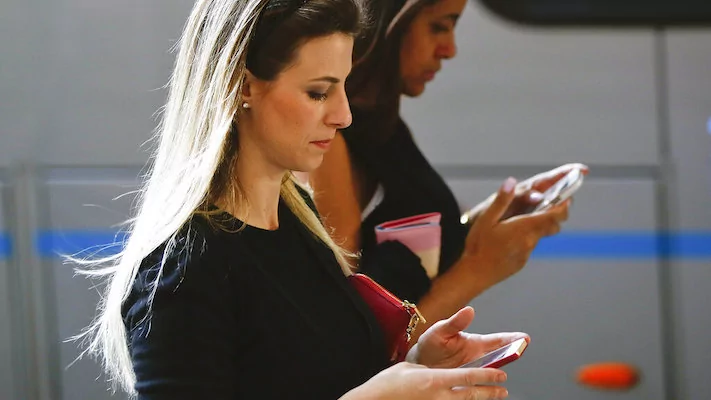

The White House has announced a new multi-agency initiative aimed at curbing the use of corporate practices that aggravate customers by wasting their time, such as long hold times to cancel subscriptions and the overuse of automated chatbots.
The administrationwide effort, dubbed “time is money,” comes as part of President Joe Biden’s broader crackdown on corporations perceived to be profiting off customers in tricky or deceptive ways. For instance, Biden’s White House has made clamping down on so-called junk fees a priority.
“The administration is cracking down on all the ways that companies through paperwork, hold times, and general aggravation waste people’s time and then really hold on to their money,” Domestic Policy Council Director Neera Tanden said on a call with reporters ahead of the announcement.
An example of this, Tanden said, is when gym companies make it possible to sign up for memberships with only one or two clicks online but then make members wait on hold for 30 minutes or visit in person to cancel.
“Or you’re trying to get help for a product you purchase, you’re stuck dealing with an unhelpful chatbot or navigating a maze of buttons just to talk to a real person,” she added.
The administration said such corporate hassles don’t just happen by accident. It is accusing companies of deliberately designing their business processes to be burdensome and time-consuming in order to maximize profits.
The plan to crack down on these practices has several prongs, according to details provided by the White House.
The Federal Trade Commission has proposed a rule that would mandate that companies make it as easy to cancel a subscription or service as it was to sign up for that subscription or service, and the FTC is now receiving public comments on the matter. Also, the Federal Communications Commission is looking into whether it will pursue a similar course of action for the communications industry.
The Department of Transportation’s new automatic refunds rule makes it so that if a customer’s flight is canceled, the airline has to refund the airfare for that flight automatically if that customer is not offered or chooses not to accept alternatives, such as rebooking.
“This rule prevents airlines from switching up their policies to make it hard to get your money back when they don’t deliver and requires them to tell you when you’re owed a refund,” the White House said in a fact sheet. “DOT’s rule also puts an end to airline runarounds by requiring refunds to be automatic, prompt, in the original form of payment, and for the full amount paid.”
The rollout also affects the healthcare space.
Some of the country’s largest health coverage plans require that customers print out health claims forms and scan or mail them in. On Monday, Health and Human Services Secretary Xavier Becerra and acting Labor Secretary Julie Su sent a letter calling on health insurance companies and group health plans to prioritize efforts to streamline the process.
Chatbots and artificial intelligence have become popular ways for businesses to handle phone calls. The White House is hoping to crack down on so-called doom loops where someone calls and is forced to go through a seemingly endless menu of options and questions in order to reach a human customer service representative at a company.
As part of that effort, the Consumer Financial Protection Bureau is initiating a rulemaking process that, if successful, would mandate that companies under CFPB jurisdiction let customers talk to a human by pressing a single button.
More specifically, the CFPB will also be targeting the use of chatbots by banks and financial institutions. The White House said the CFPB “will identify when the use of automated chatbots or automated artificial intelligence voice recordings is unlawful, including in situations in which customers believe they are speaking with a human being.”
The administration said it also wants to help parents communicate with schools. The Department of Education is now going to issue new guidance about how schools can make communicating with parents more streamlined and less cumbersome, according to the White House.
This newest “time is money” push comes after the CFPB announced new guidance last year to block large banks from charging excessive or “junk” fees for providing basic customer service.
CLICK HERE TO READ MORE FROM THE WASHINGTON EXAMINER
Under federal law, banks and credit unions are required to provide complete and accurate account information when requested by customers. Last year’s CFPB guidance aimed to clarify that people are not allowed to be charged fees for those basic requests.
The CFPB also announced a rule this year that would force most banks to cap credit card late fees at $8. The CFPB said fees cost consumers some $14 billion per year and that the new rule would go far toward curbing that, saving consumers an estimated $10 billion annually.





